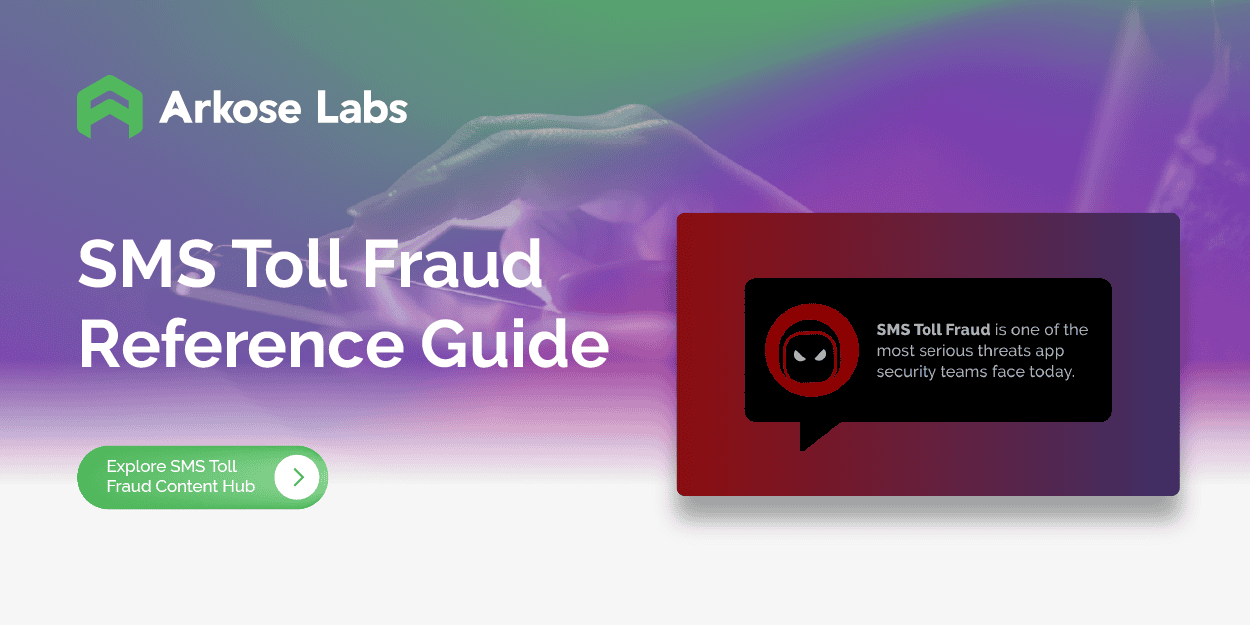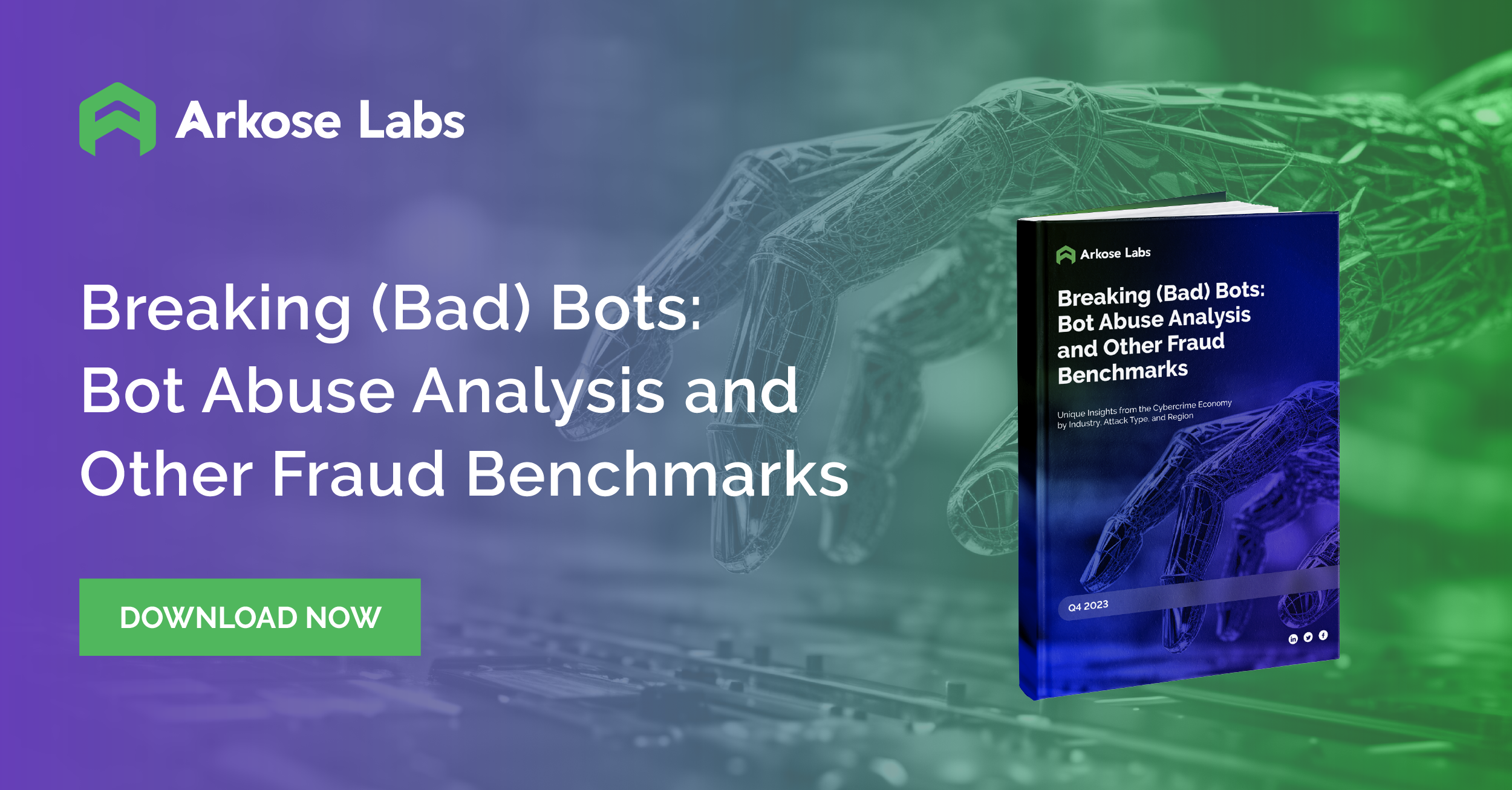- SolutionsUSE CASES
Protect users’ accounts
Slash fraud losses
Prevent spam and bots
International Revenue Share Fraud
Stop fake account registrations
Stop malicious scraping
Secure API traffic
Banking & fintech accounts

reCAPTCHA Alternative: Why 10 companies switched from reCAPTCHA to Arkose Labs to win against bots.

Bad Bots and Beyond: 2023 State of the Threat
With Arkose Labs’ 2023 State of the Threat Report, you will find extensive information and best practices around
USE CASESProtect users’ accounts
Slash fraud losses
Stop fake account registrations
International Revenue Share Fraud
Stop malicious scraping
Banking & fintech accounts
Secure API traffic
INDUSTRIESProtect users’ accounts
Banking & fintech accounts
Stop malicious scraping
Stop fake account registrations
International Revenue Share Fraud
Secure API traffic
Prevent spam and bots
Banking & fintech accounts
Slash fraud losses
- ProductsPRODUCTS
Stop bot attacks by driving up adversarial effort and cost
Assess email risk at bot scale
Detect and block reverse-proxy phishing attacks
Unique, customizable & performance improvement challenges
WHY ARKOSE LABSSabotage attacker’s ROI
Industry-first SLA guarantee
Industry-first SLA guarantee
Industry-first SLA guarantee
SERVICES & SUPPORTProfessional services expertise
Fast, reliable support
Flexible open platform
- Industries
- ResourcesINSIGHTS
Read our thought leadership blogs
Customer success stories
Videos from the Arkose Labs team
EVENTSEDUCATIONExpert Guide to Account & Identity Fraud
THOUGHT LEADERSHIPData-driven research reports
Fraud prevention guides
Fraud thought leadership
Learn how Arkose Labs prevents fraud
View all Arkose Labs content
INSIGHTSEVENTSEDUCATIONTHOUGHT LEADERSHIP - Company
- Customers
98%
Abatement in
automated attacks
90%
Reduction in fake
account registration
72%
Decrease in SMS Toll
Fraud spend
Block Bots with Arkose Bot Manager
Deter Bot Attacks by Maximizing the Cost and Effort it Takes to Carry Them Out
The Arkose Lab’s platform offers a unique combination of real-time risk assessments, machine learning analytics, transparent risk insights, and powerful attack response. The challenges of Arkose MatchKey meet today’s threats head-on by providing the best of defensibility, usability, and accessibility. In fact, it is the strongest CAPTCHA ever made.
Arkose Bot Manager
Stop bot attacks by driving up adversarial effort and cost.
Customers of Arkose Labs
Arkose Labs protects the world’s leading organizations, 20% of our customers being Fortune 500 companies,
in major industries such as financial services, e-commerce, travel, technology, and telecommunications.
We were looking to prove value in the detection of critical risk while also reducing the number of fake accounts on our platform. With Arkose Labs, we were actually able to achieve both of those goals.
Read Case StudyTrusted By the World’s Leading Companies

$1M Card Testing Warranty
Read About Warranty Benefits
$1M SMS Toll Fraud Warranty
Read About Warranty Benefits































